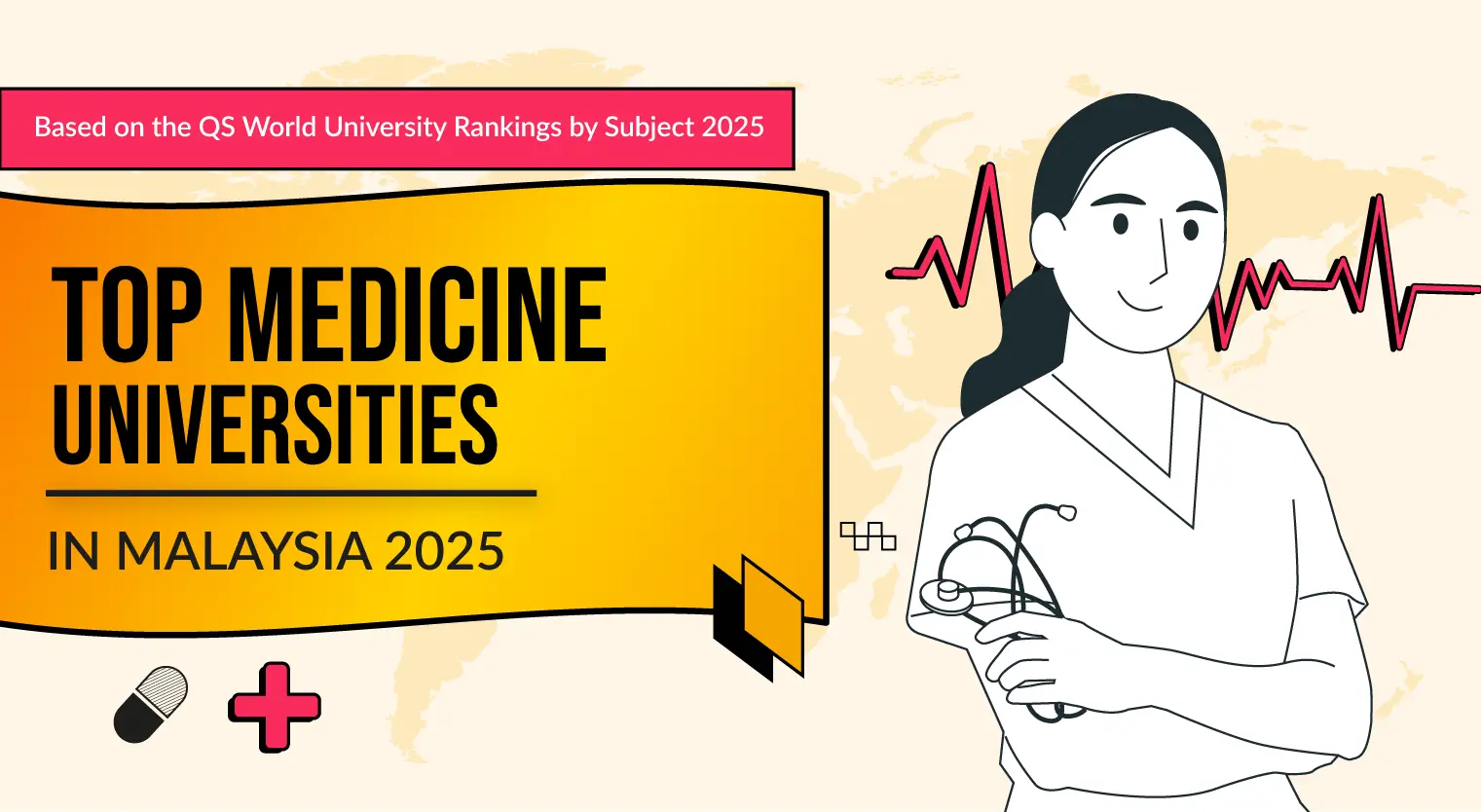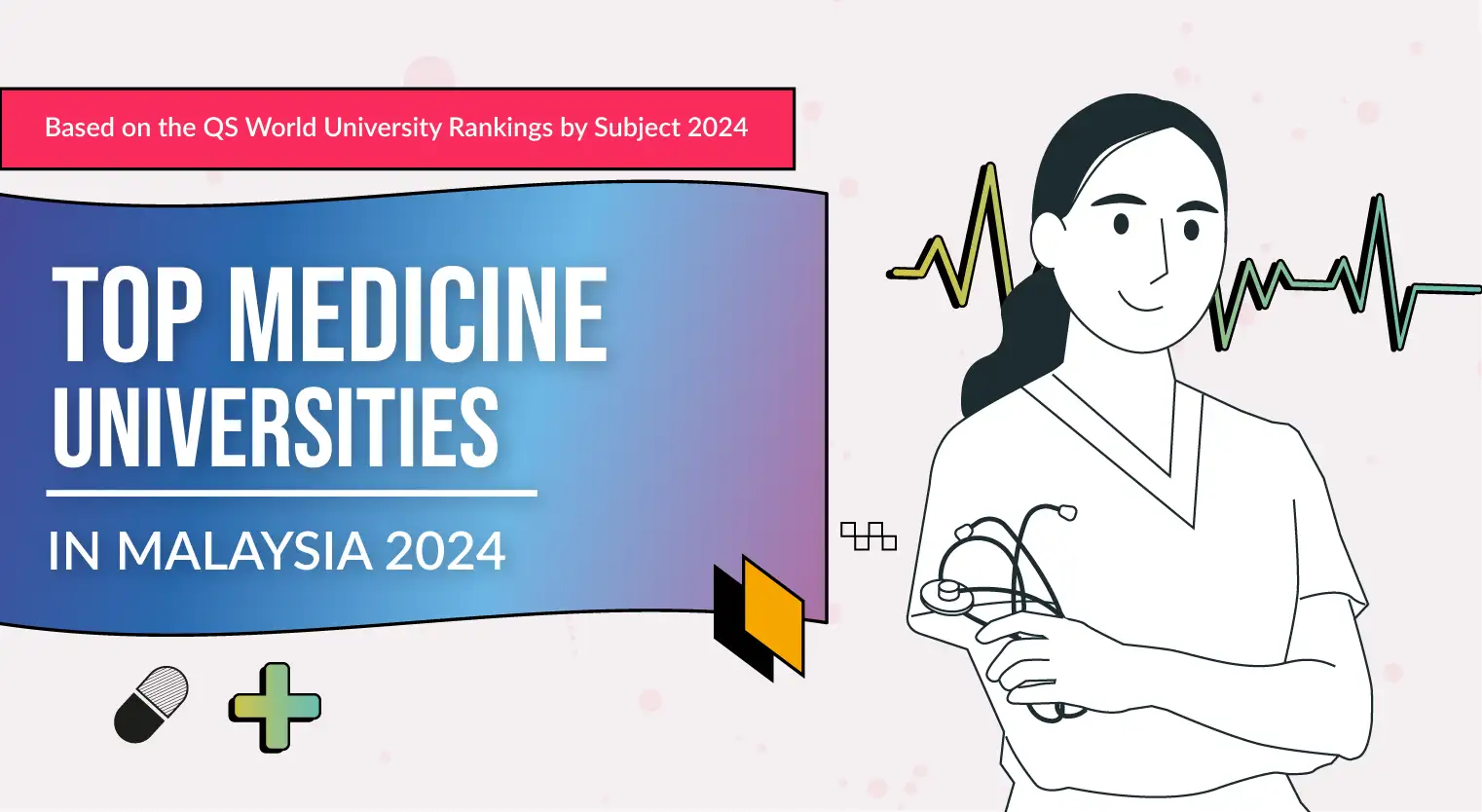Why Must You Finish Your Antibiotics? We Explain 5 Popular Health Questions
Ever wondered the differences between the flu and a cold? And why must you finish your antibiotics? Here are the answers to these common health questions.
Updated 08 Sep 2021


We all have health-related questions that bug us from time to time. For instance, why do doctors make you finish those awful antibiotics? And what’s the difference between a cold, the flu and the new novel coronavirus?
In this article, we’re debunking myths and straightening out the facts once and for all.
#1. Why must you finish your antibiotics?

If you’ve been prescribed antibiotics before, you’ve probably been told to complete the entire course of medication even if you’re already feeling better. And for a good reason.
According to experts, there are several reasons why this is important. For one, it ensures that the bacteria that's causing the infection is completely eliminated from your body. At the same time, it also reduces the risk of bacteria becoming resistant to antibiotics. Antibiotic resistance, where new strains of bacteria cannot be treated effectively by existing antibiotics, can cause more complications and illnesses last longer.
So, with that in mind, make sure to take your antibiotics as prescribed by your doctor. And whatever you do, don’t save it for future use!
#2. Why must some medication be taken after food?

Ever wondered why some medication needs to be taken before food and some after? Does it really matter as long as it gets into your stomach?
The truth is, some medicine can cause side effects to your stomach such as irritation and indigestion — and consuming food can help reduce it! Whether you take your medication with or without food depends on the type of medicine you’re prescribed. Different medicines may react differently to food — some require food in the stomach to absorb properly while others require an empty stomach to ensure that the food doesn’t interact with the medicine.
But what if you forget?
Well, it’s unlikely to be detrimental if you forget on rare occasions. However, doing it regularly may impact the effectiveness of the medicine.
PRO TIP
If you’ve always dreamt of becoming a doctor, check out Manipal University College Malaysia (MUCM). With over 20 years of track record, this renowned medical school is the largest contributor of doctors in Malaysia. Click here to learn more.
#3. Can having durian and Coca-Cola kill you?

Ah… a sweet, creamy and fragrant delight, the durian certainly is the local’s favourite fruit. Wouldn’t it be great to indulge in it with a nice can of cola?
But hold on — is it safe to do that? Your mom certainly doesn’t think so. In fact, she may have even told you to avoid having durian with fizzy drinks, alcohol and milk; else, it may kill you.
Luckily for you, a group of medical specialists has debunked that myth for you.
So far, there has been no scientific evidence stating that the combination of durian and fizzy drinks, alcohol or milk is lethal. Some people may experience heartburn and bloatedness after eating durian due to its high carbohydrate content and therefore, consuming milk or alcohol could worsen the condition. But no, it has no direct link to death. In fact, Coca-Cola has even confirmed that there is no problem with mixing these two together.
Can we get a hooray for all durian lovers?
Apply for university with EduAdvisor
Secure scholarships and more when you apply to any of our 100+ partner universities.
Start now#4. What’s the difference between a cold and a flu?

While many of us may use the terms “cold” and “flu” interchangeably, they are in reality not the same. In fact, you should be wary when someone says they’ve got the flu.
So, what’s the difference?
Although both of these illnesses have very similar symptoms such as a runny nose, they are in fact caused by different viruses.
The flu is more severe and is usually accompanied by a high fever that lasts for several days, together with chills, body aches and fatigue. It can also lead to serious complications such as pneumonia. On the other hand, the symptoms of a cold are usually milder and do not result in serious health problems.
And what about COVID-19 that has similar symptoms to the flu and the cold?
Well, there are many different strains of coronaviruses, which is a virus that causes respiratory infections. In fact, the common cold can also be caused by a coronavirus. However, the difference with this novel coronavirus is that it was spread from an animal carrier to a human and its rapid rate of infection is what’s causing everyone to be concerned.
PRO TIP
Want quality medical education? Manipal University College Malaysia (MUCM) has been consistently recognised for its excellence in education, with a rating of 4-Star based on MQA’s 2016/2017 MyQUEST rating. Click here to learn more.

#5. How does Panadol “heal” headaches?

What’s the first response someone says to you when you have a headache? It’s likely to be, “Go pop a Panadol!”
This over-the-counter medication is widely used to temporarily relieve pain and discomfort from a variety of conditions such as fever, headache, cold and flu, toothache and even period cramps.
But how does Panadol actually relieve pain? And why is it used for so many conditions?
Well, Panadol works largely due to the paracetamol in it, which is a form of painkiller that prevents the production of pain hormones (prostaglandins) in your brain and spinal cord. These pain hormones are usually released when your body is injured or sick. So by taking paracetamol, it will reduce the pain signals from your brain.
The world of medicine can be extremely fascinating
Loved reading the answers to these health questions? Or perhaps you want to be the medical professional your friends and family turn to when they have doubts about medicine and health.
If so, you’ll be in good hands if you start your medical journey with Manipal University College Malaysia (MUCM). With top-notch clinical training in Malaysia, you’ll be sure to have a smoother transition into the local healthcare system after you graduate.
Browse through programmes, find a scholarship and connect with the top medical schools in Malaysia at the EduAdvisor Medicine Virtual Fair — happening this 12 January – 1 February 2026! Click here to register.

Thank you for your enquiry
Here's what will happen next.
You’ll receive a WhatsApp confirmation from us regarding your enquiry.
Our advisors will be in touch to give you all the information you need.
Did you know all EduAdvisor students can enjoy some of the following waivers / discounts?
- Registration Waivers, Discounts and Rebates: EduAdvisor students often enjoy additional waivers, discounts and rebates during registration due to our close relationship with universities.
- EduAdvisor Registration Reward: Any student that registers through EduAdvisor (or makes an appointment to visit the university through EduAdvisor) is eligible for an extra EduAdvisor Registration Reward of RM300. T&C applies.
Start your application today via our online application form: https://eduadvisor.my/apply

Thank you for your enquiry
Here's what will happen next.
You’ll receive a WhatsApp confirmation from us regarding your enquiry.
Our advisors will be in touch to give you all the information you need.
Did you know all EduAdvisor students can enjoy some of the following waivers / discounts?
- Registration Fee Waiver: A 100% registration fee waiver is available for all EduAdvisor students using this waiver code — AGE24
- EduAdvisor Registration Reward: Any student that registers through EduAdvisor (or makes an appointment to visit the university through EduAdvisor) is eligible for an extra EduAdvisor Registration Reward of RM300. T&C applies.
Head over to: https://www.rumc.edu.my/apply-now/
Remember to use the following waiver code to be eligible for a 100% waiver on the application fee and our EduAdvisor Registration Reward: AGE24

Thank you for your enquiry
Here's what will happen next.
You’ll receive a WhatsApp confirmation from us regarding your enquiry.
Our advisors will be in touch to give you all the information you need.
Did you know all EduAdvisor students can enjoy some of the following waivers / discounts?
- EduAdvisor Registration Reward: Any student that registers through EduAdvisor (or makes an appointment to visit the university through EduAdvisor) is eligible for an extra EduAdvisor Registration Reward of RM300. T&C applies.
Head over to: https://admission.unikl.edu.my/online/frmHome.php
Remember to use the following public agent code to be eligible for our EduAdvisor Registration Reward: PA0001

Thank you for your enquiry
Here's what will happen next.
You’ll receive a WhatsApp confirmation from us regarding your enquiry.
Our advisors will be in touch to give you all the information you need.
Did you know all EduAdvisor students can enjoy some of the following waivers / discounts?
- EduAdvisor Registration Reward: Any student that registers through EduAdvisor (or makes an appointment to visit the university through EduAdvisor) is eligible for an extra EduAdvisor Registration Reward of RM300. T&C applies.
Head over to: https://application.mmu.edu.my/
Select “Agent ID”, fill in the EduAdvisor agent code: AG0000409 and select Distinctive Education Advisor to be eligible for our EduAdvisor Registration Reward.

Thank you for your enquiry
Here's what will happen next.
You’ll receive a WhatsApp confirmation from us regarding your enquiry.
Our advisors will be in touch to give you all the information you need.
Did you know all EduAdvisor students can enjoy some of the following waivers / discounts?
- EduAdvisor Registration Reward: Any student that registers through EduAdvisor (or makes an appointment to visit the university through EduAdvisor) is eligible for an extra EduAdvisor Registration Reward of RM300. T&C applies.
Head over to: https://oculus.uts.edu.my/apply/signup.php
Remember to use the following agent ID to be eligible for our EduAdvisor Registration Reward: DEA

Thank you for your enquiry
Here's what will happen next.
You’ll receive a WhatsApp confirmation from us regarding your enquiry.
Our advisors will be in touch to give you all the information you need.
Did you know all EduAdvisor students can enjoy some of the following waivers / discounts?
- Registration Fee Waiver: A 50% registration fee waiver is available for EduAdvisor students during selected UCSI events.
- EduAdvisor Registration Reward: Any student that registers through EduAdvisor (or makes an appointment to visit the university through EduAdvisor) is eligible for an extra EduAdvisor Registration Reward of RM300. T&C applies.
Head over to UCSI’s website here.
Remember to use the following agent code to be eligible for our EduAdvisor Registration Reward: 779700

Thank you for your enquiry
Here's what will happen next.
You’ll receive a WhatsApp confirmation from us regarding your enquiry.
Our advisors will be in touch to give you all the information you need.
Did you know all EduAdvisor students can enjoy some of the following waivers / discounts?
- Registration Fee Waiver: A 50% registration fee waiver is available for EduAdvisor students during selected UCSI events.
- EduAdvisor Registration Reward: Any student that registers through EduAdvisor (or makes an appointment to visit the university through EduAdvisor) is eligible for an extra EduAdvisor Registration Reward of RM300. T&C applies.
Head over to UCSI’s website here.
Remember to use the following agent code to be eligible for our EduAdvisor Registration Reward: 100023

Thank you for your enquiry
Here's what will happen next.
You’ll receive a WhatsApp confirmation from us regarding your enquiry.
Our advisors will be in touch to give you all the information you need.
Did you know all EduAdvisor students can enjoy some of the following waivers / discounts?
- Tuition Fee Rebate: A RM1,500 tuition fee rebate is available for EduAdvisor students during selected NUMed events.
- EduAdvisor Registration Reward: Any student that registers through EduAdvisor (or makes an appointment to visit the university through EduAdvisor) is eligible for an extra EduAdvisor Registration Reward of RM300. T&C applies.
Head over to: https://application.newcastle.edu.my/registration?ref=1652487az1ydp0i

Thank you for your enquiry
Here's what will happen next.
You’ll receive a WhatsApp confirmation from us regarding your enquiry.
Our advisors will be in touch to give you all the information you need.
Did you know all EduAdvisor students can enjoy some of the following waivers / discounts?
- EduAdvisor Registration Reward: Any student that registers through EduAdvisor (or makes an appointment to visit the university through EduAdvisor) is eligible for an extra EduAdvisor Registration Reward of RM300. T&C applies.
Head over to: https://intake.utmspace.edu.my/refer/63c50d45156c8

Thank you for your enquiry
Here's what will happen next.
You’ll receive a WhatsApp confirmation from us regarding your enquiry.
Our advisors will be in touch to give you all the information you need.
Did you know all EduAdvisor students can enjoy some of the following waivers / discounts?
- Early Bird Waiver: A waiver of RM1,000 is available for all EduAdvisor students enrolling in this programme. T&C applies.
- Edu Assist: A tuition fee waiver of up to 35% is available for students that are from low income family. T&C applies.
- EduAdvisor Registration Reward: Any student that registers through EduAdvisor (or makes an appointment to visit the university through EduAdvisor) is eligible for an extra EduAdvisor Registration Reward of RM300. T&C applies.
Start your application today via our online application form: https://eduadvisor.my/apply

Thank you for your enquiry
Here's what will happen next.
You’ll receive a WhatsApp confirmation from us regarding your enquiry.
Our advisors will be in touch to give you all the information you need.
Did you know all EduAdvisor students can enjoy some of the following waivers / discounts?
- RM500 Rebate: A rebate of RM500 is available for all EduAdvisor students enrolling in this programme.
- EduAdvisor Registration Reward: Any student that registers through EduAdvisor (or makes an appointment to visit the university through EduAdvisor) is eligible for an extra EduAdvisor Registration Reward of RM300. T&C applies.
Start your application today via our online application form: https://eduadvisor.my/apply

Thank you for your enquiry
Here's what will happen next.
You’ll receive a WhatsApp confirmation from us regarding your enquiry.
Our advisors will be in touch to give you all the information you need.
Did you know all EduAdvisor students can enjoy some of the following waivers / discounts?
- Registration Bursary: A further discount of RM1,000 is available for eligible students enrolling in this programme.
Start your application today via our online application form: https://eduadvisor.my/apply

Thank you for your enquiry
Here's what will happen next.
You’ll receive a WhatsApp confirmation from us regarding your enquiry.
Our advisors will be in touch to give you all the information you need.
Did you know all EduAdvisor students can enjoy some of the following waivers / discounts?
- Open Day Waiver: A further waiver of RM450 to RM800 is available for eligible students enrolling in this programme during IMU's Open Day events.
- EduAdvisor Registration Reward: Any student that registers through EduAdvisor (or makes an appointment to visit the university through EduAdvisor) is eligible for an extra EduAdvisor Registration Reward of RM300. T&C applies.
Start your application today via our online application form: https://eduadvisor.my/apply

Thank you for your enquiry
Here's what will happen next.
You’ll receive a WhatsApp confirmation from us regarding your enquiry.
Our advisors will be in touch to give you all the information you need.
Did you know all EduAdvisor students can enjoy some of the following waivers / discounts?
- Application Fee Waiver: A RM100 application fee waiver code is available for EduAdvisor students during selected Monash events.
- EduAdvisor Registration Reward: Any student that registers through EduAdvisor (or makes an appointment to visit the university through EduAdvisor) is eligible for an extra EduAdvisor Registration Reward of RM300. T&C applies.
Start your application today via our online application form: https://eduadvisor.my/apply

Thank you for your enquiry
Here's what will happen next.
You’ll receive a WhatsApp confirmation from us regarding your enquiry.
Our advisors will be in touch to give you all the information you need.
Did you know all EduAdvisor students can enjoy some of the following waivers / discounts?
- EduAdvisor Registration Reward: Any student that registers through EduAdvisor (or makes an appointment to visit the university through EduAdvisor) is eligible for an extra EduAdvisor Registration Reward of RM300. T&C applies.
Start your application today via our online application form: https://eduadvisor.my/apply

Thank you for your enquiry
Here's what will happen next.
You’ll receive a WhatsApp confirmation from us regarding your enquiry.
Our advisors will be in touch to give you all the information you need.
Did you know all EduAdvisor students can enjoy some of the following waivers / discounts?
- Registration Fee Rebate: A registration fee rebate of up to RM1,000 is available for EduAdvisor students enrolling in this programme.
- Early Bird Waiver: An early bird waiver of RM1,500 is available for EduAdvisor students enrolling in this programme for the July 2024 intake.
- EduAdvisor Registration Reward: Any student that registers through EduAdvisor (or makes an appointment to visit the university through EduAdvisor) is eligible for an extra EduAdvisor Registration Reward of RM300. T&C applies.
Start your application today via our online application form: https://eduadvisor.my/apply

Thank you for your enquiry
Here's what will happen next.
You’ll receive a WhatsApp confirmation from us regarding your enquiry.
Our advisors will be in touch to give you all the information you need.
Did you know all EduAdvisor students can enjoy some of the following waivers / discounts?
- Early Bird / Event Day Waiver: A fee waiver of RM500 is available for all EduAdvisor students enrolling in this programme. T&C applies.
- EduAdvisor Registration Reward: Any student that registers through EduAdvisor (or makes an appointment to visit the university through EduAdvisor) is eligible for an extra EduAdvisor Registration Reward of RM300. T&C applies.
Start your application today via our online application form: https://eduadvisor.my/apply

Thank you for your enquiry
Here's what will happen next.
You’ll receive a WhatsApp confirmation from us regarding your enquiry.
Our advisors will be in touch to give you all the information you need.
Did you know all EduAdvisor students can enjoy some of the following waivers / discounts?
- Open Day Waiver: A application fee waiver of up to RM500 is available for all EduAdvisor students enrolling in this programme during MAHSA's Open Days.
- EduAdvisor Registration Reward: Any student that registers through EduAdvisor (or makes an appointment to visit the university through EduAdvisor) is eligible for an extra EduAdvisor Registration Reward of RM300. T&C applies.
Start your application today via our online application form: https://eduadvisor.my/apply

Thank you for your enquiry
Here's what will happen next.
You’ll receive a WhatsApp confirmation from us regarding your enquiry.
Our advisors will be in touch to give you all the information you need.
Did you know all EduAdvisor students can enjoy some of the following waivers / discounts?
- Registration Fee Waiver: A Registration Fee Waiver of up to RM500 is available for EduAdvisor students.
- Special Tuition Fee Waiver: A further discount of RM1,000 is available for eligible EduAdvisor Students enrolling in this programme.
- EduAdvisor Registration Reward: Any student that registers through EduAdvisor (or makes an appointment to visit the university through EduAdvisor) is eligible for an extra EduAdvisor Registration Reward of RM300. T&C applies.
Start your application today via our online application form: https://eduadvisor.my/apply

Thank you for your enquiry
Here's what will happen next.
You’ll receive a WhatsApp confirmation from us regarding your enquiry.
Our advisors will be in touch to give you all the information you need.
Did you know all EduAdvisor students can enjoy some of the following waivers / discounts?
- Registration Fee Discount: A rebate of RM500 to RM1,000 is available for EduAdvisor students enrolling in this programme.
- EduAdvisor Registration Reward: Any student that registers through EduAdvisor (or makes an appointment to visit the university through EduAdvisor) is eligible for an extra EduAdvisor Registration Reward of RM300. T&C applies.
Start your application today via our online application form: https://eduadvisor.my/apply

Thank you for your enquiry
Here's what will happen next.
You’ll receive a WhatsApp confirmation from us regarding your enquiry.
Our advisors will be in touch to give you all the information you need.
Did you know all EduAdvisor students can enjoy some of the following waivers / discounts?
- Event Waiver: A RM500 admin fee rebate is available for all EduAdvisor students during selected UM-Wales events. T&C applies.
- EduAdvisor Registration Reward: Any student that registers through EduAdvisor (or makes an appointment to visit the university through EduAdvisor) is eligible for an extra EduAdvisor Registration Reward of RM300. T&C applies.
Start your application today via our online application form: https://eduadvisor.my/apply

Thank you for your enquiry
Here's what will happen next.
You’ll receive a WhatsApp confirmation from us regarding your enquiry.
Our advisors will be in touch to give you all the information you need.
Did you know all EduAdvisor students can enjoy some of the following waivers / discounts?
- Registration Waiver: A rebate of RM1,000 to RM2,000 is available for EduAdvisor students enrolling in this programme.
- EduAdvisor Registration Reward: Any student that registers through EduAdvisor (or makes an appointment to visit the university through EduAdvisor) is eligible for an extra EduAdvisor Registration Reward of RM300. T&C applies.
Start your application today via our online application form: https://eduadvisor.my/apply

Thank you for your enquiry
Here's what will happen next.
You’ll receive a WhatsApp confirmation from us regarding your enquiry.
Our advisors will be in touch to give you all the information you need.
Did you know all EduAdvisor students can enjoy some of the following waivers / discounts?
- Application Fee Waiver: A fee waiver of RM150 is available for all EduAdvisor students enrolling in this programme. T&C applies.
- EduAdvisor Registration Reward: Any student that registers through EduAdvisor (or makes an appointment to visit the university through EduAdvisor) is eligible for an extra EduAdvisor Registration Reward of RM300. T&C applies.
Start your application today via our online application form: https://eduadvisor.my/apply

Thank you for your enquiry
Here's what will happen next.
You’ll receive a WhatsApp confirmation from us regarding your enquiry.
Our advisors will be in touch to give you all the information you need.
Did you know all EduAdvisor students can enjoy some of the following waivers / discounts?
- Open Day Rebate: A RM500 rebate is available for EduAdvisor students during MCKL's events.
- EduAdvisor Registration Reward: Any student that registers through EduAdvisor (or makes an appointment to visit the university through EduAdvisor) is eligible for an extra EduAdvisor Registration Reward of RM300. T&C applies.
Start your application today via our online application form: https://eduadvisor.my/apply
Thank you for your enquiry
Here's what will happen next.
You’ll receive a WhatsApp confirmation from us regarding your enquiry.
Our advisors will be in touch to give you all the information you need.
Did you know all EduAdvisor students can enjoy some of the following waivers / discounts?
- Open Day Waiver: A application fee waiver of up to RM500 is available for all EduAdvisor students enrolling in this programme during MAHSA's Open Days.
- EduAdvisor Registration Reward: Any student that registers through EduAdvisor (or makes an appointment to visit the university through EduAdvisor) is eligible for an extra EduAdvisor Registration Reward of RM300. T&C applies.
Head over to: https://at.edv.my/apply-mahsa
Thank you for your enquiry
Here's what will happen next.
You’ll receive a WhatsApp confirmation from us regarding your enquiry.
Our advisors will be in touch to give you all the information you need.
Did you know all EduAdvisor students can enjoy some of the following waivers / discounts?
- Registration Waivers, Discounts and Rebates: EduAdvisor students often enjoy additional waivers, discounts and rebates during registration due to our close relationship with universities.
- EduAdvisor Registration Reward: Any student that registers through EduAdvisor (or makes an appointment to visit the university through EduAdvisor) is eligible for an extra EduAdvisor Registration Reward of RM300. T&C applies.
Start your application today via our online application form: https://eduadvisor.my/apply

Generating your application
Hang tight! This will only take 1-2 minutes...
0%

Your application form is ready
We've prepared your university application based on the details provided. Review and sign to complete your university application.

Submitting your application
Hang tight! This will only take 1-2 minutes...
0%

Your application form is submitted

Nina Fazil
A work in progress — has been for the past 24 years.





